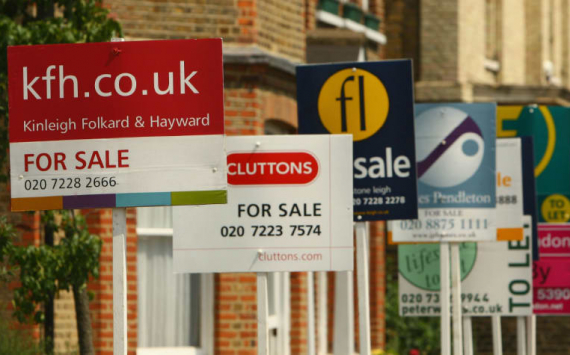
It’s “D-day” for thousands of home movers as they look to complete property transactions ahead of changes in the stamp duty tax break.
At midnight tonight the tax-free threshold on property purchases will drop from £500,000 to £250,000 and remain at this rate until 30 September. Then on 1 October the nil-rate band will return to the standard amount of £125,000.
It’s not just people buying and selling their homes who will be nervous ahead of tonight’s deadline. There will be “thousands of nails bitten, hair pulled out and rows between frazzled mortgage brokers, lenders, solicitors, surveyors and estate agents”, says Sarah Davidson in iNews.
Announced by Chancellor Rishi Sunak in his 2020 summer statement, the stamp duty holiday in England and Northern Ireland was introduced to reverse a slump in property sales at the start of the pandemic, The Guardian reports.
It initially applied until 31 March this year, however, in the Spring Budget a six-month extension was confirmed with staggered limits until the end of September. Sunak said the move would save jobs in the construction sector and encourage homeowners to move and invest in their homes.
‘Hanging by a thread’
While the 30 June stamp duty extension was welcome, “it did nothing to address the cliff-edge effect” we will start to see from tomorrow, says iNews’s Davidson. She hopes that buyers have “factored in enough cash buffer” to proceed with their purchases if they miss the deadline. “But inevitably there will be people whose transactions collapse, sending shockwaves up and down property chains.”
Buyers stand to save up to £15,000 if they complete by 30 June – after that it will be £2,500, This Is Money reports. If deals aren’t completed before the deadline they will have to find as much as £12,500.
A large number of home purchases are thought to be “hanging by a thread”. Buyers who don’t have the extra funds needed to pay their resulting tax bill will be forced to pull out of the deal and “potentially put a chain of sales at risk”, The Guardian says.
Who has benefited?
The stamp duty holiday “definitely stimulated the housing market”, says the BBC. The UK has had a property boom in the past year and, according to building society Nationwide, annual house price growth has risen to 13.4%, the highest level since November 2004. The average price of a home in the UK was £245,432 in June – a rise of 0.7% from May.
Rightmove estimates that 1.3m buyers have benefited from the stamp duty holidays since they were announced last year. Tim Bannister, Rightmove’s director of property data, said in the past few months “the race for space has overtaken the race to beat the stamp duty deadline”, with buyer demand and deals being done at higher levels than 2019.
Intense market activity driven largely by the stamp duty holiday has also been “a win for the Treasury” with the tax break pushing 1.8m UK properties into a higher stamp duty bracket, City A.M. reports.
The Treasury has taken £4.2bn in stamp duty so far in 2021. In May stamp duty receipts were £652m, down by around a third on April’s figure but 81% higher than May 2020.
A permanent break or return to normality?
With tax take remaining high there have been calls for the stamp duty holiday to be made permanent, This Is Money reports. Jonathan Stinton, head of intermediary relationships at Coventry Building Society, said: “If the taxman is still getting a healthy payday from stamp duty even with this holiday, perhaps keeping the threshold high would help to normalise the market and take at least some of the financial burden off the average homebuyer.”
However, while introducing a stamp duty holiday at the height of the pandemic was “commendable”, it has “overstayed its welcome”, says Tom Bill, head of UK residential research at Knight Frank. “In a similar way to rising interest rates, there will be a financial hit from ending the holiday but the wider point is that it signals a return to normality.”
What happens next?
Research by Rightmove has found that only 4% of buyers in England would abandon their plans to buy a property if they missed either the June or September stamp duty deadline. One in four (25%) said they would try to renegotiate the price with the seller while 13% said they would plan to buy a cheaper home.
“Activity is still strong despite this first phase of the stamp duty holiday coming to an end in England, as prior to the extension being announced there was already a huge group of buyers deciding to move regardless of the stamp duty holiday,” said Rightmove’s Tim Bannister.
Meanwhile, Ross Counsell, chartered surveyor and director at Good Move, expects the housing market and price inflation to “calm down” and “become more attainable for buyers”. “For anyone looking to purchase a property, the advice is simple: hang fire,” he said. “If the statistics are reflective of anything over the past year, the stamp duty is of benefit to only one side of the coin – the sellers. If buyers can wait it out until the end of the deadline, they should expect to save a significant amount of money on a property.”
Source: https://www.theweek.co.uk/953338/stamp-duty-d-day-what-next-for-the-housing-market

















































